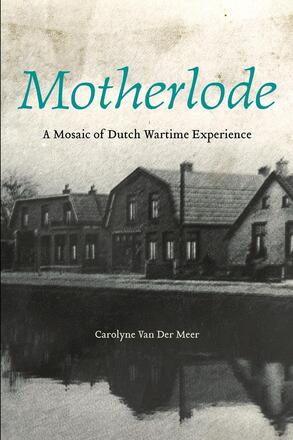
Motherlode
A Mosaic of Dutch Wartime Experience
La description
“The voices emerging from the pages are haunting: replete with powerful emotions and modernity. " –Isabelle Laflèche
“Motherlode is Carolyne Van Der Meer’s Orphic journey to reclaim the past of her mother, a child during the five years of Nazi occupation of the Netherlands. The mosaic of poetry, fiction, and reminiscence is her Dodenherdenking, a remembrance of the dead, but also her immersion in the Lake of Memory. Her quest to understand a loved one expresses the need of every child and every parent to know and to be remembered. If the past is a foreign country, Van Der Meer shows us that with empathy and imagination, we can enter that land as more than mere tourists. ” –Steven Manners
Reviews
In reading Carolyne Van Der Meer's remarkable work, Motherlode: A Mosaic of Dutch Wartime Experiences, I was reminded of the intricate lace curtains found on the windows throughout Holland. In this creative reinterpretation of memories and experiences, Van Der Meer has eloquently succeeded in intertwining short stories, poems, and essays with the delicate touch of a fine Dutch lace maker. Based on the recollections of the author's mother and other Dutch Canadians, as well as letters from and interviews with Canadian soldiers and resistance fighters, Van Der Meer takes these accounts and her first-hand research to craft a compelling view of what we are left with after war's end.
- Gina Roitman, The Rover, February 23, 2014, 2014 February
Content determines form, or, more precisely, the multiple forms that comprise Carolyne Van Der Meer's unique and moving new book Motherlode: A Mosaic of Dutch Wartime Experiences. Juxtaposing essays, poems, journal entries, letters, interviews, and short stories, Van Der Meer demonstrates how our life story is seldom, if ever, set in stone. Instead, it's a moving target, a kaleidoscope of the complicated ways in which we choose to remember... Motherlode is part of Wilfrid Laurier University Press's Life Writing Series. With more than 50 titles to its credit, the series aimes to ‘foreground the stories of those who may never have imagined themselves as writers.’ That said, this is a writerly book. Van Der Meer may not have started out with literary intentions, but by mixing fact and fiction, by involving a cast of peripheral characters—including other Dutch war children, participants in the Dutch Resistance, and Canadian war veterans—she gives a voice to the previously silent ‘voices of the time.’
- Joel Yanofsky, Montreal Review of Books, Spring 2014, 2014 April
A mesmerizing journey through occupied wartime Netherlands; the voices emerging from the pages are haunting: replete with powerful emotions and modernity.
- Isabelle Laflèche, author of <i>J'adore New York</i> and <i>J'adore Paris</i>, 2013 November